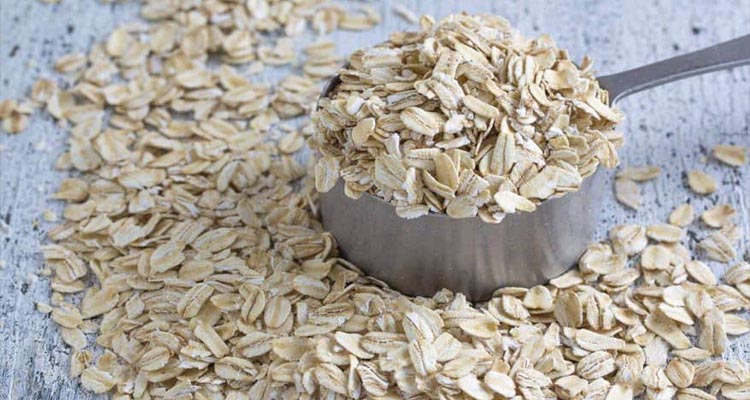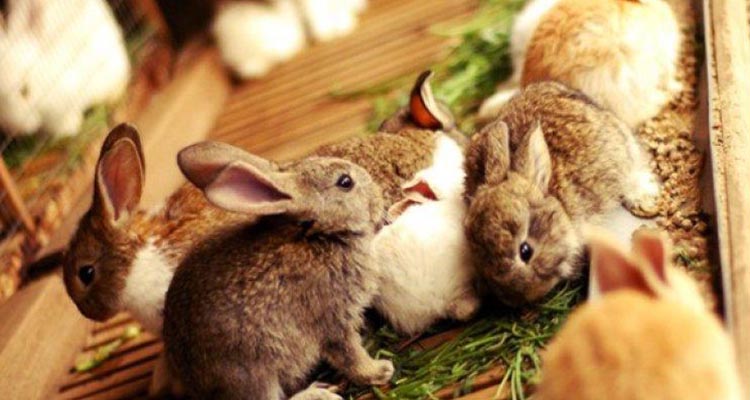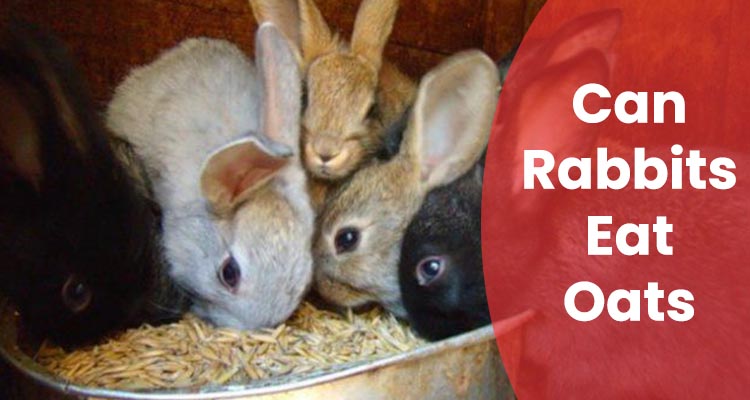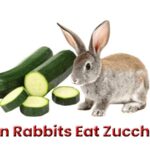Rabbits are gentle, social creatures that have become popular pets in many homes worldwide. They are characterized by soft fur, playful nature and interesting behaviors that can make them form strong bonds with their owners; hence becoming great companions.
Nevertheless, rabbit keeping is coupled with the responsibility of providing them with a balanced diet that caters to their specific dietary requirements. A rabbit’s menu should be made up of hay, fresh vegetables and pellets in small amounts which enhance their well-being.
As a rabbit owner, you might wonder about adding other foods to their diet, such as oats. Can rabbits eat oats? This has been one question people from all around keep asking since human beings know how energy boosting oatmeal is as well as its health benefits on the body.
In this article, we will look at whether oats are safe and good food for rabbits or not. We shall explore their nutrient content, possible advantages and disadvantages linked to feeding bunnies on oats so that you become acquainted and decide if you want to go ahead including it in your bunny’s meal plan upon making an informed judgment.
Are Oats Safe for Rabbits?
Usually, oats are okay for rabbits to eat, but they should be given carefully and in moderation. In terms of their high fiber content which makes them a requisite for rabbit’s nutrition. Oats are different from hay and leafy greens. Nevertheless, oats have lots of calories and carbohydrates.
Although this may provide them with immediate energy, it can also be dangerous if taken in vast amounts leading to obesity as well as gastrointestinal problems.
Rabbits possess delicate digestive systems that thrive on low carb and high fiber diets. The lesser amount of fiber found in oats than hay means these cannot replace some elements necessary for a good rabbit’s diet. Yet, there are circumstances where oats come into play like with underweight bunnies or those who are recovering from sickness that could necessitate the addition of calories.
If you do feed your rabbit oats, do so sparingly — starting small and monitoring their reaction closely. Always go for plain oatmeal without much sugar or flavoring and talk to your vet before making any changes regarding your pet’s meals.
Nutritional Content of Oats
From providing energy and sustenance, oats are known as a nutrient-dense source of food. Oats are mainly composed of carbohydrates that supply quick and easily accessible energy. This is associated with high carbohydrate content which is supplemented by moderate levels of proteins and fats in the grain making oats more calorie-dense when compared to some of the other foods found in a rabbit’s diet.
Oats also contain a range of vitamins and minerals such as B vitamins, iron, magnesium, and zinc among others. Such nutrients are important for health in general, nonetheless oatmeal has not been designed specifically for the rabbits’ dietary needs.
One thing to note is that in comparison to hay and leafy greens, oats have low fiber content. Due to this fact, oats lack adequate fiber content that can assist animals like rabbits in maintaining proper digestion which subsequently will prevent them from developing diseases such as gastrointestinal stasis hence they cannot be relied upon as a regular food source.
Even though there might be some nutritional benefits derived from feeding on oats it should only be done sparingly so that those fed do not take up primary components meant for rabbit’s diet alone.
Also Read - Can Rabbits Eat Bread? Find its nutritional info for Bunnies.
When Are Oats Beneficial?
Sometimes rabbits need a few extra calories or some more energy, and oats can be of help in such cases. Underfed rabbits and those who are recovering from diseases may receive an added advantage through the intake of oats. The high content of carbohydrates and calories present in oats however makes them highly effective in helping these rabbits gain weight and regain their energy, especially when they are struggling to maintain a healthy body condition.
Further, aged rabbits or those with higher than normal energy needs may benefit from incorporating oats into their diets. Oats provide an easy source of instant energy for the rabbit thus maintaining its active levels. However, caution should be exercised to avoid overwhelming its digestive system by slowly and incrementally introducing small portions of oats only.
Nevertheless, frequent feeding with oats remains unacceptable for rabbits as they require other types of food. They should eat mostly hay, some fresh vegetables, and little pellets so that they get enough fiber plus minerals which their body needs. When you want to give your pet bunnies oats, always ask your veterinary doctor if it is safe because he might have any problems health-wise.

How to Feed Oats to Rabbits
Feeding oats to rabbits should be done with carefulness and moderation. During the first time, feed it with a small batch of approximately one tablespoon to see if they can tolerate it. This gradual process helps avoid digestive problems that are majorly caused by oats that have sensitive stomachs. Always choose plain, unflavored oats- do not take those that contain sugars, salt or artificial flavorings since they can be dangerous for your rabbit.
Oats on the other hand can be given as an occasional treat or mixed together with your rabbit’s usual food, but should never replace the essential parts of a rabbit’s diet such as hay, fresh vegetables and a small amount of pellets. These foods have high fiber contents necessary for healthy digestion which is lacking in oats.
Check your rabbit carefully after you start feeding it this type of grain and see if there are any indications of getting fat or experiencing problems with its stomach working wrong. If your bunny loves eating this type of grain without any complications, you may keep giving her some bites although make sure that she doesn’t eat much. For instance, always consult a veterinary doctor before making any dietary changes to ensure good health for your bunny friend.
Advantages of Feeding Oats to Rabbits
There are various advantages of feeding oat to rabbits, especially in moderation and under certain circumstances. This is because oats are rich in carbohydrates and therefore provide energy to the rabbits. Rabbits can use these supplements in case they are thin or recovering from any disease so as to gain weight and become stronger.
Another advantage is that oats contain some proteins and fats that may be necessary for certain rabbits such as those that are advanced in age or require more energy. They have B vitamins, iron, and magnesium among other vitamins and minerals hence supporting well-being by facilitating energy metabolism and muscle functioning.
Additionally, compared to other kinds of grain, oats tend to be gentle on the digestive systems of rabbits making them among the best diets for malnourished bunnies who need nourishing without burdening their stomachs with heavy foodstuffs. Still, it should be remembered that oats can only offer this kind of benefit if they are occasionally fed but cannot substitute for hay and fresh vegetables which must always form part of a rabbit’s diet plan.
Disadvantages of Feeding Oats to Rabbits
There are several disadvantages that should be taken into consideration when feeding rabbits with oats. The major concern is their high carbohydrate and calorie levels. Rabbits have a delicate digestive system that thrives on a diet rich in fiber but low in calories. Overfeeding oats can cause weight gain, which increases the probability of suffering from obesity and other problems such as joint disorders and heart disease.
Another disadvantage is that oats have relatively low amounts of fiber compared to hay or leafy greens which are important for maintaining a good digestion in rabbits. Gastrointestinal stasis, whereby the digestive system slows down or even stops leading to serious consequences if not tackled immediately, can arise from a diet too low in fiber.
Additionally, the oat’s protein and fat content is higher than what would typically be required by rabbits, hence it may upset the nutrient balance when taken in excessive amounts. Such imbalance leads to digestive issues and can affect overall health in the long run. Thus though safe to feed occasionally, oats must never replace key components of a rabbit’s nutrition plan.
Other Foods That Can Replace Oats
If you are looking for safer oat alternatives for your rabbit’s diet, the following suggestions may help. These foods have similar benefits but are not associated with the risks of high carbohydrate and low fiber content.
Hay: The mainstay of a rabbit’s diet is hay which is rich in fiber and helps maintain healthy digestion. Timothy hay, orchard grass and meadow hay offer excellent options that provide essential nutrients, keep your bunny’s teeth worn down and ensure a smooth gastrointestinal system.
Fresh Vegetables: Romaine lettuce, kale, spinach, etc are good examples of the great switch from oats. They contain low calories while they are high in fiber apart from being loaded with vitamins and minerals important for overall health. In addition to this other vegetables like carrots, bell peppers and broccoli can also be given occasionally.
Read This - What To Feed Rabbit?
Herbs: A rabbit’s diet may be healthier and more tasty when fresh herbs like parsley, coriander leaves and basil are included. These herbs can diversify feeding by adding up nutrients, unlike carbohydrates.
Pellets: Some high-quality pellet types in the market suit the nutritional requirements of rabbits when combined with hay and vegetables. Protein, fiber, and vital minerals are usually well-balanced in such pellets.
Fruits: Although they contain a lot of sugar, some fruits can be given in small amounts as occasional treats. Examples of popular ones include apples (seeds removed), berries, or bananas; which most bunnies find enjoyable.
These foods have better nutritional profiles than oats for rabbits because they provide them with the needed fiber and essential nutrients without any negative side effects.

FAQ
Can oats cause any health problems in rabbits?
Certainly, overfeeding them with oats can lead to obesity, gut problems, and lack of fibre which is vital for a rabbit’s digestive system.
Can baby rabbits eat oats?
It’s better not to feed oats to young rabbits because their digestive systems are even more delicate. Stick to hay, mother’s milk, and appropriate pellets.
Is it okay to mix oats with my rabbit’s pellets?
You may blend rabbit pellets with a few pieces of oat but ensure there exists no gluttony behavior in the primary diet that should be high in fiber.
Are there any benefits to feeding oats to rabbits?
Oats can offer an instant energy boost and could be helpful for rabbits that are underweight or still going through recovery but shouldn’t constitute a major part of their diet.
What are the signs that my rabbit is eating too many oats?
Signs are weight gain, no desire to eat hay again, soft feces or bloated belly which may imply some digestive problems.
Should I consult a vet before feeding oats to my rabbit?
Of course, if you want to introduce oatmeal into your pet’s diet, it is better to consult with a veterinary doctor first.
Conclusion
Although oats are non-toxic for rabbits when given in small quantities, they should be used with caution and on rare occasions. They can thus not serve as a staple diet because of their high carbohydrate and calorie content compared to the high fiber requirement that is rabbit’s major feeding regime composed mainly of hay and fresh vegetables.
Oats will help provide a temporary boost in energy and may be beneficial for underweight or recuperating rabbits, however, they must never replace the essential elements found in a rabbit’s diet.
To incorporate oats into your rabbit’s diet, start with a minimal quantity and see how your rabbit responds while making sure it remains well-balanced and high-fiber. Always go for plain oats without any additives if you are not sure about anything or if you have an abnormal rabbit.
Therefore, keeping them on track with their diets can guarantee that your pet has a long life filled with good health and occasionally gets improved nutrition from having oats.


